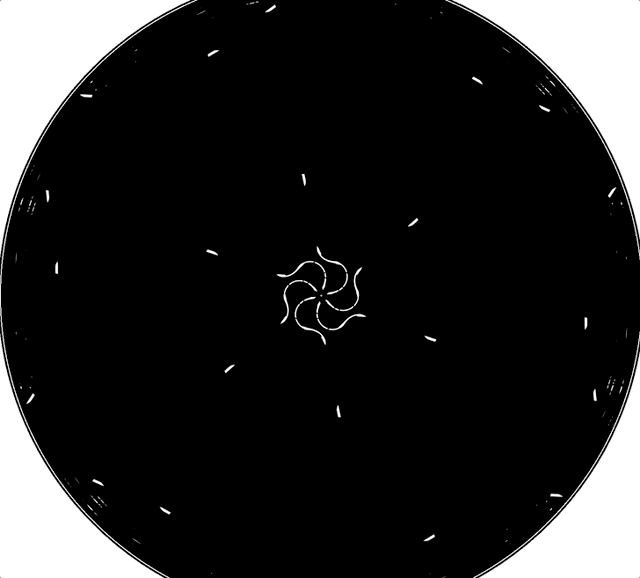via Big Think by Philip Perry
We used to think neurogenesis – the growth of new brain cells, occurred throughout one’s lifetime. A shocking new study out of UC-San Francisco finds that instead, no more memory cells grow in the hippocampus after childhood. That's staggering, as this area of the brain associated with really important things such as learning, memory, and emotion. One of the largest studies of its kind to date, the scientists examined 59 human brain specimens, all of varying ages, and found no new neuron formation past age 13.
Neuroscientists have been debating since the late 1920s whether or not neurogenesis occurs into adulthood. From the ‘80s on, the prevailing view was that neurogenesis takes place throughout our lives. That’s because lots of studies confirmed the phenomenon occurring past the juvenile stage in the brains of other species, including birds, mice, rats, and nonhuman primates. In rats, for instance, new neurons are constantly formed around the olfactory bulb, which is associated with the sense of smell.
Continue reading
==============================
via the OUP blog by Roy Livermore

Horst and Graben: Basin and Range by NPS Natural Resources. Public domain via Flickr
You might think that a phenomenon such as plate tectonics, operating on a timescale of millions of years, would have little relevance to our lives today. In fact, plate tectonics could be the reason we, and the rest of life on Earth, are here at all.
In 2004, John Prescott, then Deputy Prime Minister in Tony Blair’s New Labour government, remarked, “the tectonic plates appear to be moving,” referring to the impending downfall of Mr Blair. Since then, the tectonic plates metaphor has been applied to just about every major political transition, including events following the UK referendum on leaving the European Union and the election of Donald Trump as US President. In fact, as with most things, the politicians have got it wrong. There is no such thing as a “tectonic plate”: it is not the plates that are tectonic, but the tectonics that is plate-like.
Continue reading
This is a bit technical but I found what I could understand quite interesting!
And I love the politician comment above!
==============================
via About History by Alcibiades

VASCONES
An Indo-European tribe settled in the Pyrenees mountains bordering both Spain and France, the Vascones were first encountered by the Roman Republic. Their descendants are the Basque peoples inhabiting the same region as their ancestors. Roman records indicate that the Vascones had used a language so alien, and nothing like they had previously encountered, that to this day it has not been deciphered. Assimilated under Roman rule, the Vascones faced threats from the Franks, the Goths, the Visigoths and Arabs in the Middle Ages, but had managed to not be too influenced from outsiders, due to the isolated geographical region they inhabited.
Continue reading
==============================
via the Guardian by Gavin Haynes

Pile ’em high … eat to beat doomsday. Photograph: Costco
Those keen to survive Armageddon will be pleased to note a bargain in Costco this week. The US retail giant is selling $6,000 (£4,330) “doomsday prepper” food kits. Promising enough to feed a family of four for a year, these 600-can stacks contain freeze-dried carrots, egg noodles, quick oats, macaroni, freeze-dried banana slices and potato chunks, among many other staples. And because there’s nothing more embarrassing than starving neighbours attacking your post-doomsday compound, it is all “packaged discreetly for privacy in shipping”.
Continue reading
==============================
via Interesting Literature
On a well-known children’s rhyme
We continue our short pieces about star-related poems today, following on from yesterday’s post about Emily Dickinson’s star-poem. ‘Twinkle, twinkle, little star’ is a well-known children’s poem, and yet, like many well-known things, how well do we actually know it? Who wrote it, for instance? And who can recite the second verse of the poem? Is it a poem, or a song? Clearly these matters require a little investigation and analysis to become fully clear. But first, a reminder of ‘Twinkle, twinkle, little star’ – and we mean the full version, not just that famous first verse.
Continue reading
I admit to having forgotten the other verses to this poem. A timely reminder?
==============================
via the Big Think blog by Philip Perry
The myths and legends of the Amazons are fascinating and telling of the Greek culture they enthralled and through them, our own culture as well.
We marvel at Wonder Woman and other characters that represent female power. Although we view such symbols as a modern-day phenomenon, they aren’t new. They go back to the roots of western civilization and beyond. Greek myth, the stories of Homer and the writings of Herodotus all mention a band of fierce and skilled warrior women. Wonder Woman was based, partly, on these legends from antiquity.
Continue reading
==============================
via 3 Quarks Daily: Eliot Weinberger in the LRB
In the second century BCE, Liu An, king of Huainan, asked the scholars of his court to prepare a book that would outline everything a wise monarch should know about statecraft, philosophy, and general world knowledge. The result was the massive ‘Huainanzi’, which runs to nine hundred large pages in English translation. Here are some excerpts, based on the translation by Sarah A. Queen and John S. Major:
If a ruler rejects those who work for the public good, and employs people according to friendship and factions, then those of bizarre talent and frivolous ability will be promoted out of turn, while conscientious officials will be hindered and will not advance. In this way, the customs of the people will fall into disorder throughout the state, and accomplished officials will struggle.
Continue reading
==============================
via Boing Boing by Clive Thompson

Untitled (the flower game) is a gorgeous game – playable online, or via a downloadable app -- where you draw a gradually evolving flower, using the left-right keys.
It offers two styles of play – an “arcade mode”, where you race to hit as many red targets as possible, and a “drawing machine” mode, where you just use the game to draw gorgeous, symmetrical designs. I’ve been zoning out for fifteen minutes using the latter, and I’m calmer than I’ve felt all week, heh.
Continue reading
Just watching that gif is enough to calm me!
==============================
via Interesting Literature
Kipling’s fine poem about our canine friends
‘The Power of the Dog’ by Rudyard Kipling (1865-1936), prolific poet, novelist, and writer of short fiction for both adults and children, extols the dog’s most famous virtue – its undying loyalty and devotion to its owner – but also warns against giving your heart to a dog for it ‘to tear’. Dogs, for Kipling, are not just man’s best friend: they are heartbreakers.
Continue reading
==============================
via the OUP blog by WJ Rorabaugh

“Orange County Sheriff’s deputies dumping illegal booze, Santa Ana, 3-31-1932” courtesy of Orange County Archives via Creative Commons.
American politics is frequently absurd, often zany, and sometimes downright crazy. Among the most outrageous past ideas was the legal Prohibition of alcohol, which was put into the US Constitution as the Eighteenth Amendment in 1920. Prohibition lasted until 1933, when the Twenty-First Amendment brought repeal and tight government regulation of alcohol.
How and why one of the world’s hardest-drinking societies embarked upon a scheme to ban alcohol is a tale worth remembering. Prohibition shows the difference between good intentions and bad results. It also offers a cautionary note to all who would propose government-mandated legal bans to other social ills; such bans may have unanticipated negative results.
Continue reading
No comments:
Post a Comment